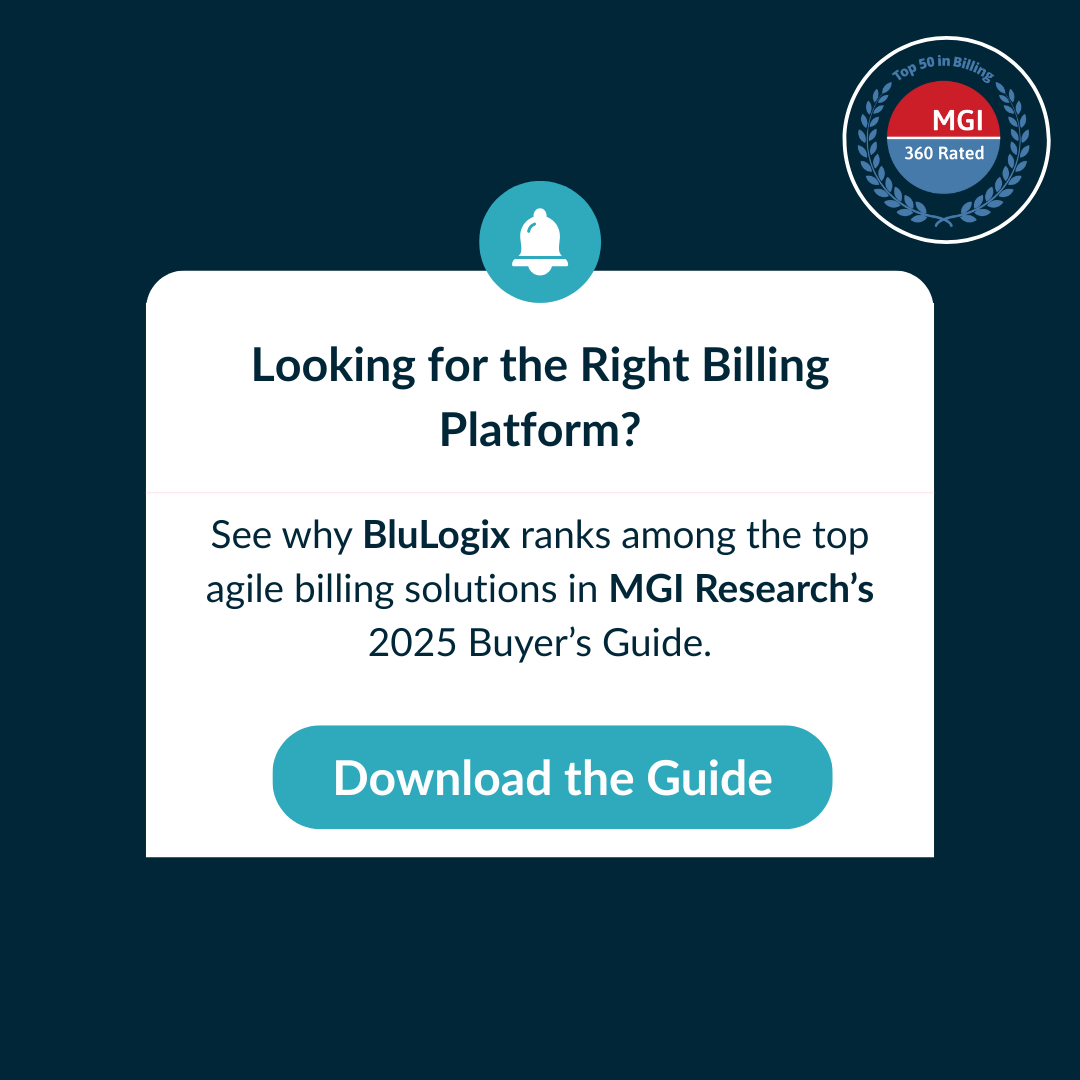Revenue Recognition: Ensuring Compliance and Accuracy
What is RevRec and how does it impact accurate reporting for compliance and financial integrity?
Ready to see how BluIQ can transform your billing process and help you achieve integrated, automated, and accurate complex monetization? Schedule a demo with a BluLogix billing expert today and take the first step towards revolutionizing your revenue management.
Revenue Recognition: Ensuring Compliance and Accuracy
In the realm of financial management, revenue recognition is one of the most critical components for maintaining compliance and financial integrity. Accurate revenue recognition ensures that a business’s financial statements reflect its true financial health, aligning with regulatory requirements and providing stakeholders with a transparent view of the company’s performance. Whether a business operates in SaaS, manufacturing, retail, or services, adhering to revenue recognition standards is essential for building trust, ensuring compliance, and achieving sustainable growth.
The Importance of Accurate Revenue Recognition
Revenue recognition refers to the process of recording revenue when it is earned, regardless of when payment is received. This process must comply with established accounting standards, such as ASC 606 or IFRS 15, which provide guidelines on how and when revenue should be recognized. Accurate revenue recognition is vital for several reasons:
- Financial Integrity: Accurate revenue recognition ensures that a company’s financial statements accurately reflect its revenue streams. This helps provide a clear picture of the company’s performance, allowing stakeholders—such as investors, regulators, and creditors—to make informed decisions based on reliable financial data.
- Regulatory Compliance: Compliance with accounting standards is crucial to avoid legal issues and penalties. Revenue recognition standards, such as ASC 606, require companies to recognize revenue in a way that reflects the transfer of goods or services to customers. Adhering to these standards reduces the risk of compliance violations and maintains the company’s reputation for transparency and reliability.
- Consistency and Comparability: Accurate revenue recognition allows for consistent and comparable financial reporting. This is particularly important for companies that operate across multiple markets or have diverse revenue streams. Consistency in revenue recognition practices enables meaningful comparisons over time, helping stakeholders understand the company’s growth trajectory and operational success.
Challenges in Revenue Recognition
Revenue recognition can be challenging, especially for businesses with complex revenue models. Companies in industries like SaaS, telecommunications, and construction often face unique challenges when recognizing revenue:
- Subscription and Usage-Based Models: For SaaS and telecom companies, revenue recognition is complicated by subscription fees, usage-based charges, and variable consideration. Businesses must determine when revenue should be recognized, which may vary based on customer usage or service delivery milestones.
- Multiple Performance Obligations: In cases where a contract includes multiple deliverables, such as software, hardware, and ongoing support, companies must allocate revenue to each performance obligation and recognize it appropriately. This requires careful analysis to ensure compliance with standards.
- Project-based Contracts: For industries like professional services, where projects may span several months or even years, determining the percentage of completion and recognizing revenue accordingly can be complex. Accurate tracking of project progress is essential to ensure revenue is recognized in line with the value delivered.
Best Practices for Revenue Recognition
To ensure compliance and accuracy in revenue recognition, businesses can adopt several best practices:
- Implement Automation Tools: Automated revenue recognition software helps reduce the risk of errors and ensures compliance with accounting standards. Automation allows businesses to track performance obligations, allocate revenue accurately, and generate reports that align with regulatory requirements.
- Regular Training and Updates: Accounting standards are subject to changes, and it is important for finance teams to stay updated on the latest regulations. Regular training ensures that the team understands current standards and can apply them correctly.
- Cross-Departmental Collaboration: Revenue recognition often involves multiple departments, including sales, finance, and operations. Effective collaboration between these departments helps ensure that all aspects of revenue—such as contract terms, delivery milestones, and customer payments—are accurately accounted for.
Real-World Impact of Accurate Revenue Recognition
Consider a SaaS company that offers annual subscriptions with multiple add-on services. Accurate revenue recognition ensures that revenue from the base subscription, as well as from each add-on, is recognized appropriately over time. This approach not only aligns with accounting standards but also provides stakeholders with a clear picture of the company’s recurring revenue streams and financial health.
Another example is a construction company working on long-term projects. By using percentage-of-completion accounting, the company can recognize revenue as work progresses, providing a more accurate reflection of its financial performance. This transparency is crucial for maintaining investor confidence and securing project financing.
Revenue Recognition is a cornerstone of financial integrity and compliance. Accurate revenue recognition practices ensure that financial statements are reliable, regulatory standards are met, and stakeholders have a clear understanding of a company’s performance. By addressing the challenges associated with complex revenue models and implementing best practices, businesses can enhance compliance, minimize risks, and build trust with investors and customers.
In today’s business landscape, where transparency and accountability are more important than ever, ensuring accuracy in revenue recognition is not just about meeting regulatory requirements—it is about building a foundation for long-term success and financial stability.
Ready to see how BluIQ can transform your billing process and help you achieve integrated, automated, and accurate complex monetization? Schedule a demo with a BluLogix billing expert today and take the first step towards revolutionizing your revenue management.
Learn more

Why Revenue Leakage is the Hidden Threat for AI & SaaS Companies

How AI and Predictive Analytics Are Transforming Revenue Processes for Finance Teams



